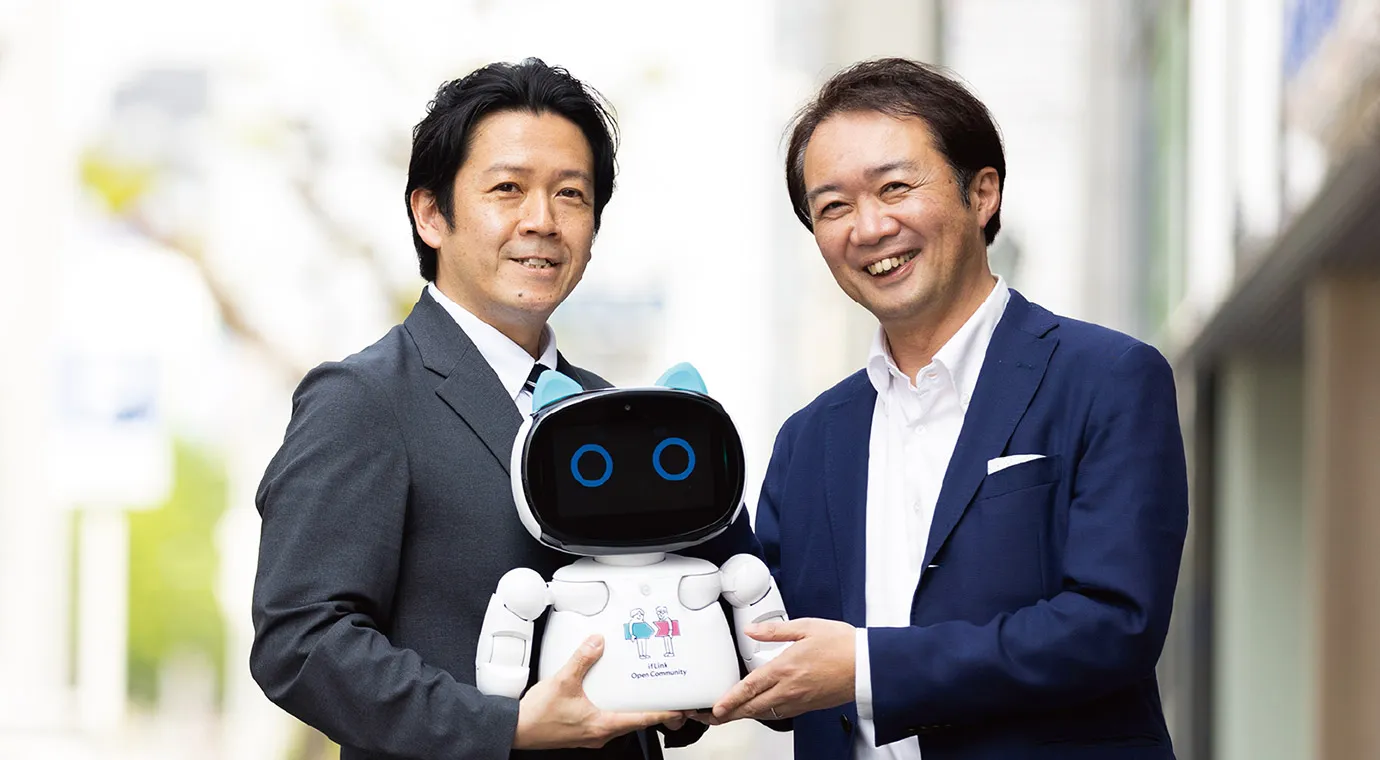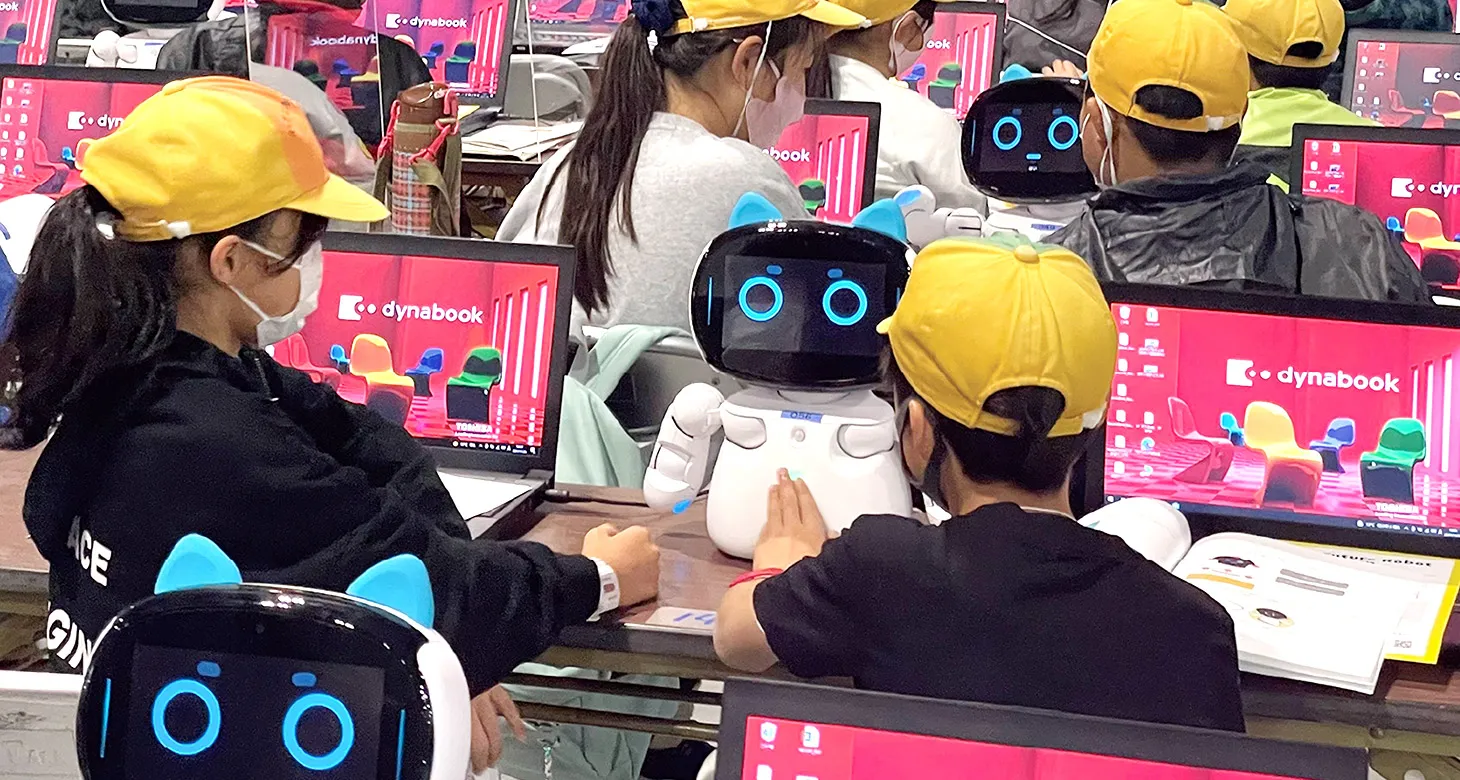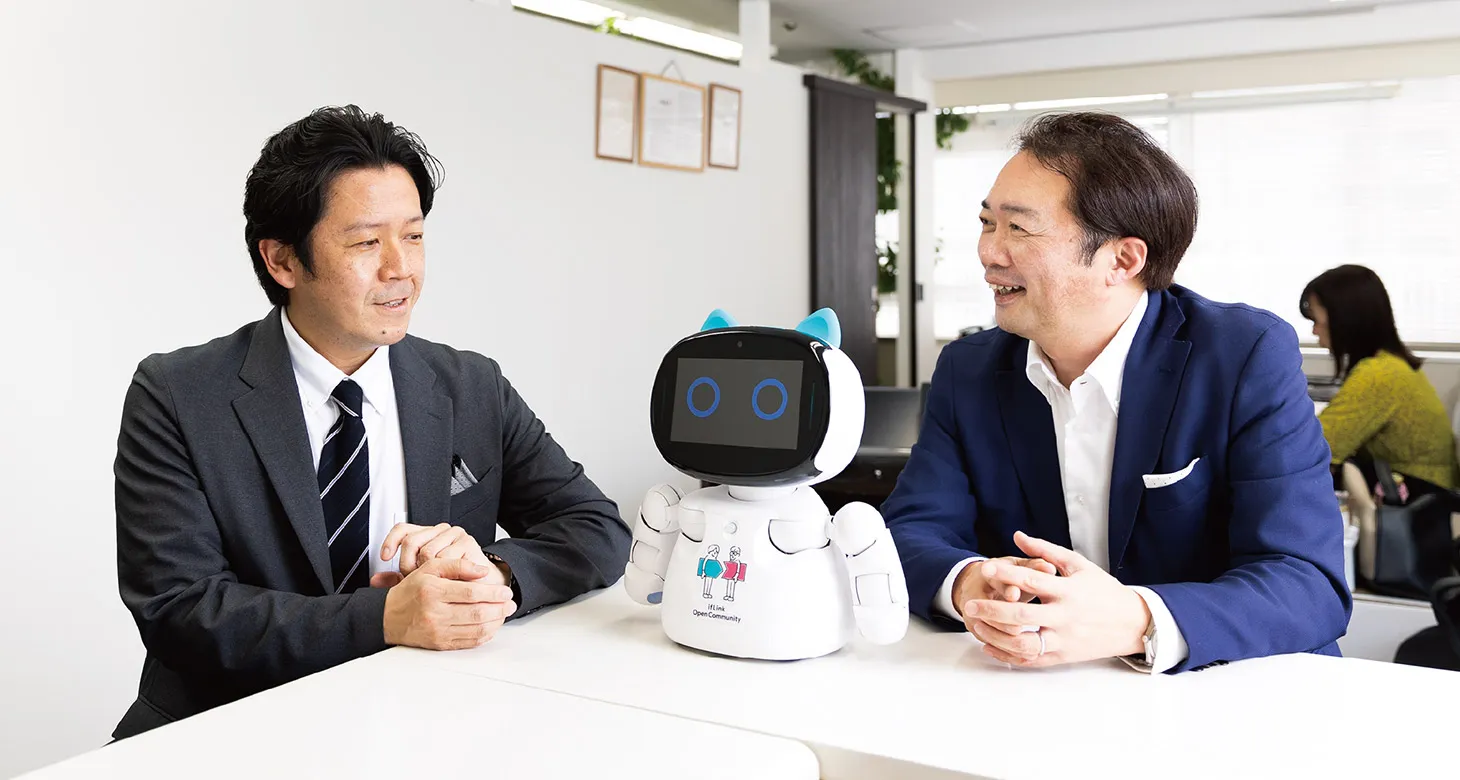
A project to develop school curriculum utilizing robots

Edutex focuses on providing programming education services at schools and tutoring schools using Kebbi, a communication AI robot, as well as jointly developing social services in collaboration with Nagoya International Technical Vocational University, companies, and development partners, and conducting implementation and deployment projects.
Learn the basics in class, and discover a variety of uses in personal IoT class.
A project to develop school curriculum utilizing robots.

Making programming more user-friendly with Kebbi×ifLink
The AI robot, Kebbi is used by Edutex in its educational business. In addition to the robot’s approachable appearance, it is characterized as a platform robot. That is, its uses are unlimited. It can be enjoyably used without restriction by independently programming its contents. Programming can be easily done by anyone using the ifLink system to provide explanations. Once programming is done, Kebbi will actually move and can be used in hands-on classes. Kebbi is being incorporated into programming classes in educational settings to develop special classes and curricula to boost children’s autonomy and inventiveness.
Rather than simply make programming classes easy to understand, the intent is for various companies to participate. For instance, a company can provide a special class so that children can think about what IoT is needed while they experience work in class. As children use products offered by companies, they can consider new application for products and IoT. Children are able to learn about practical IoT in society, and companies can take advantage of the class to gain understanding of their company and as a test-marketing opportunity. A new type of class, advantageous for both sides, becomes possible.
Introduction started in elementary and middle schools classes. Full-scale introduction at high schools in 2023.
Programming class has become required at elementary and middle schools, and special classes using Kebbi have already been held multiple times. Kebbi is equipped with ifLink, so children can begin simple hands-on operation of Kebbi with the ifLink app. Edutex also collaborated with the company MaruzenJunkudo Bookstores to implement a special class. Students learned about what happens during a day at a bookstore, and while experiencing that type of work, a workshop was conducted to think about new IoT services needed at bookstores. For students in high school and beyond, a curriculum is being considered for programming class that takes into account the characteristics of individual schools. Currently, improvements are being made while carrying out classes on a trial basis, but from 2023, a full-scale adoption is planned for high schools in Aichi Prefecture.
The possibilities for new uses of devices become infinite with programming and children's creativity.

Edutex Inc.�E�YOKO CHO / Tetsuya Hirata
User-friendly IoT for both children and teachers.
Cho: We joined the Community after reading the book Scale-free Network, written by the CEO of Toshiba, Taro Shimada. Innovation is brought by organically connecting people wanting to offer services, people wanting to give shape to ideas, and diverse people and companies. I agree with that.
Hirata: I think becoming a member was a good choice. There’s no other Community where it’s possible to cooperate with so many well-known companies and companies possessing technologies. We expected to find a large number of creators and engineers among the members, and felt the venture membership to be highly beneficial because the annual membership fee is reasonable.
Cho: We were eager to install ifLink in the AI robot, Kebbi, which we manage as an educational tool. Today, the demand for programming education is increasing as new policies are being presented, such as the GIGA School Program and STEAM education. We wanted to use ifLink to carry out programming education capable of contributing to children’s growth.
Hirata: Equipping Kebbi with ifLink enables the “if/then Eframework to be used. It’s very good for understanding programming mechanisms. Just as "if Kebbi is approached/then it speaks", "if Kebbi raises its right hand/then a sound is made", in programming when you establish a certain setting, then a certain action happens. It’s been well received not only by children, but also teachers who are unfamiliar with IT.
Striving for programming classes and develop social connections
Cho: Since we’re using ifLink, in the future we hope to link up Kebbi with devices from participating companies.
Hirata: That’s right. Both Kebbi and ifLink are purely platforms, so their applications aren’t fixed. We hope that children will think out of the box to develop Kebbi.
Cho: If companies offer their products, then children will become familiar with the companies and their products. This makes test marketing possible, which is also an advantage for companies.
Hirata: The other day, a special class was held at MaruzenJunkudo Bookstores. I think that workshop was well received. While participants got to know about the work carried out at bookstores, ideas were solicited for IoT application under the theme, “What if Kebbi was in bookstores? EFor example, people want to hear book recommendations from an AI robot!
Cho: Learning about programming technologies is meaningless unless that knowledge is put to use. In IT education, it’s crucial to actually observe how robots are used in society and think about how to combine them with other products. Of course, programming class is not a completely new study independent of regular classes.
Hirata: Right. Understanding work and companies through utilization of IoT is in some ways connected to social studies, and if Kebbi is made to speak, then you need to study languages such as Japanese and English. I think it’s an endeavor to produce synergism with other educational materials.
Cho: If students can think and create for themselves to a certain extent, then they can perhaps also start creating things together with companies throught the Community. Precisely because use isn’t limited, a single idea may very possibly lead to working with companies. We anticipate a great deal from this far-reaching platform and Community.
